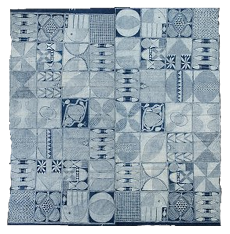
artigos e ensaios - 1998 / Mariza Peirano
When anthropology is at home:
The different contexts of a single discipline
Introduction
Until recently, the idea of an anthropology at home was a paradox and a contradiction of terms. Throughout the twentieth century, however, the distances between ethnologists and those they observed - once seen as "informants"- have constantly decreased: from the Trobrianders to the Azande, from these groups to the Bororo by way of the Kwakiutl, by midcentury the academic community discovered that the approach, not the subject matter, had unwittingly always defined the anthropological endeavor. Lévi-Strauss (1962) played a fundamental role in this change of perspective by imprinting a horizontal sense to social practices and beliefs in any latitude; Firth (1956) and Schneider (1968) provided the necessary test of validity in the realm of kinship studies. The awareness that the search for radical otherness contained a political component allowed "indigenous" anthropologies to enter the scene during the 1970s (Fahim 1982); in the 1980s Geertz (1983) could proclaim that "we are all natives now". But admonitions from the older generation attested that the movement from overseas to across the hall was not smooth; studying at home was seen by many as a difficult task and better entrusted to researchers who had gained experience elsewhere (Dumont 1986).
From the beginning, anthropologists who had their origins in former anthropological sites were exempted from the search for alterity - provided that their training had been undertaken with the prosper mentors. Thus Malinowski gave his approval to Hsiao-Tung to publish his monograph on Chinese peasants, remarking that if self-knowledge is the most difficult to gain, then "an anthropology of one's own people is the most arduous, but also the most valuable achievement of a fieldworker" (Malinowski 1939: xix). The approval that Radcliffe-Brown and Evans-Pritchard gave to the study by Srinivas (1952) on the Coorgs of India also suggests that the canon could be developed independent of shared practices. The ideal of overseas research, however, remained the goal to be reached. Decades later, and as part of a tradition that had firmly questioned the need of external fieldwork (Béteille & Madan 1975; Srinivas 1966, 1979; Uberoi 1968) Saberwal (1982) remarked that for many, fieldwork in India could be seen as a soft experience, because it was accomplished mostly within the language, caste, and region of origin of the researcher. Leia na íntegra...
